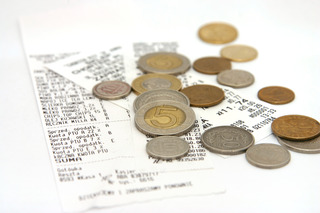Business leaders in Hungary are worried about the country's deteriorating investment climate
Published:
5 October 2003 y., Sunday
Business leaders in Hungary are worried about the country's deteriorating investment climate. Calls on the country's Central Bank to cut interest rates and on the government to curb state spending have so far gone unheeded.
All the Hungarians seem interested in is a major fraud and money-laundering scandal – and especially in the question: who's to blame?
The time when Hungary used to be a model scholar in the transition process to a free market economy has been over for some time. Recent governments - the last one (conservative) under Fidesz leader Viktor Orbán, and the incumbent (left-liberal) coalition led by Péter Medgyessy (no party affiliation) - seem caught up in inter-party squabbling rather than dealing with the necessary political and economic reforms prior to joining the European Union in May next year.
Central Bank governor Zsigmond Járai is becoming increasingly skeptical about the government's stated aim to join the euro zone by 2008. The Finance ministry is constantly coming up with economic growth predictions that have undergone downward adjustments – from 4 percent to 3 to 3.5, recently.
Last year's spring election, with its record turnout, demonstrated that a majority of Hungarians no longer supported Mr Orbán's us-Hungarians-we-are-the-greatest philosophy: by a slim majority voters preferred the alternative, a coalition of socialists and progressive liberals, led by the wealthy businessman-banker Mr Medgyessy.
Šaltinis:
rnw.nl
Copying, publishing, announcing any information from the News.lt portal without written permission of News.lt editorial office is prohibited.
The most popular articles
 European cities may still be feeling the pinch of the global recession.
more »
European cities may still be feeling the pinch of the global recession.
more »
 The EBRD Board of Directors has approved a $50 million convertible loan to Petrolinvest to finance the completion of exploration works at the company’s main oilfields.
more »
The EBRD Board of Directors has approved a $50 million convertible loan to Petrolinvest to finance the completion of exploration works at the company’s main oilfields.
more »
 The European Commission welcomes the adoption today at the United Nations in Geneva of the first international regulation on safety of both fully electric and hybrid cars.
more »
The European Commission welcomes the adoption today at the United Nations in Geneva of the first international regulation on safety of both fully electric and hybrid cars.
more »
 Bloomberg has today announced that Lithuania had the outlook on its credit rating raised by Fitch Ratings after the Government implemented an austerity program to curb the budget deficit.
more »
Bloomberg has today announced that Lithuania had the outlook on its credit rating raised by Fitch Ratings after the Government implemented an austerity program to curb the budget deficit.
more »
 In January 2010, compared with December 2009, the highest increase in retail trade in the EU-27 Member States was observed in Lithuania.
more »
In January 2010, compared with December 2009, the highest increase in retail trade in the EU-27 Member States was observed in Lithuania.
more »
 Three thousand former car, refrigerator and construction workers in Germany and Lithuania will get €7.6 million in EU globalisation adjustment fund aid for training, self-employment and job guidance after Parliament gave the green light on Tuesday.
more »
Three thousand former car, refrigerator and construction workers in Germany and Lithuania will get €7.6 million in EU globalisation adjustment fund aid for training, self-employment and job guidance after Parliament gave the green light on Tuesday.
more »
 Some 80% of Europeans continue to travel for their holidays according to a new Eurobarometer survey on ‘The attitudes of Europeans towards tourism 2010’.
more »
Some 80% of Europeans continue to travel for their holidays according to a new Eurobarometer survey on ‘The attitudes of Europeans towards tourism 2010’.
more »
 The EU's internal market will be under scrutiny Tuesday when a series of reports will be debated by MEPs in Strasbourg.
more »
The EU's internal market will be under scrutiny Tuesday when a series of reports will be debated by MEPs in Strasbourg.
more »
 EU Employment and Social Affairs Ministers today agreed on a new facility to provide loans to people who have lost their jobs and want to start or further develop their own small business.
more »
EU Employment and Social Affairs Ministers today agreed on a new facility to provide loans to people who have lost their jobs and want to start or further develop their own small business.
more »
 Over €7.6 million in financial aid for training and self-employment could be available to former workers in German and Lithuanian if MEPs back the measures Tuesday.
more »
Over €7.6 million in financial aid for training and self-employment could be available to former workers in German and Lithuanian if MEPs back the measures Tuesday.
more »